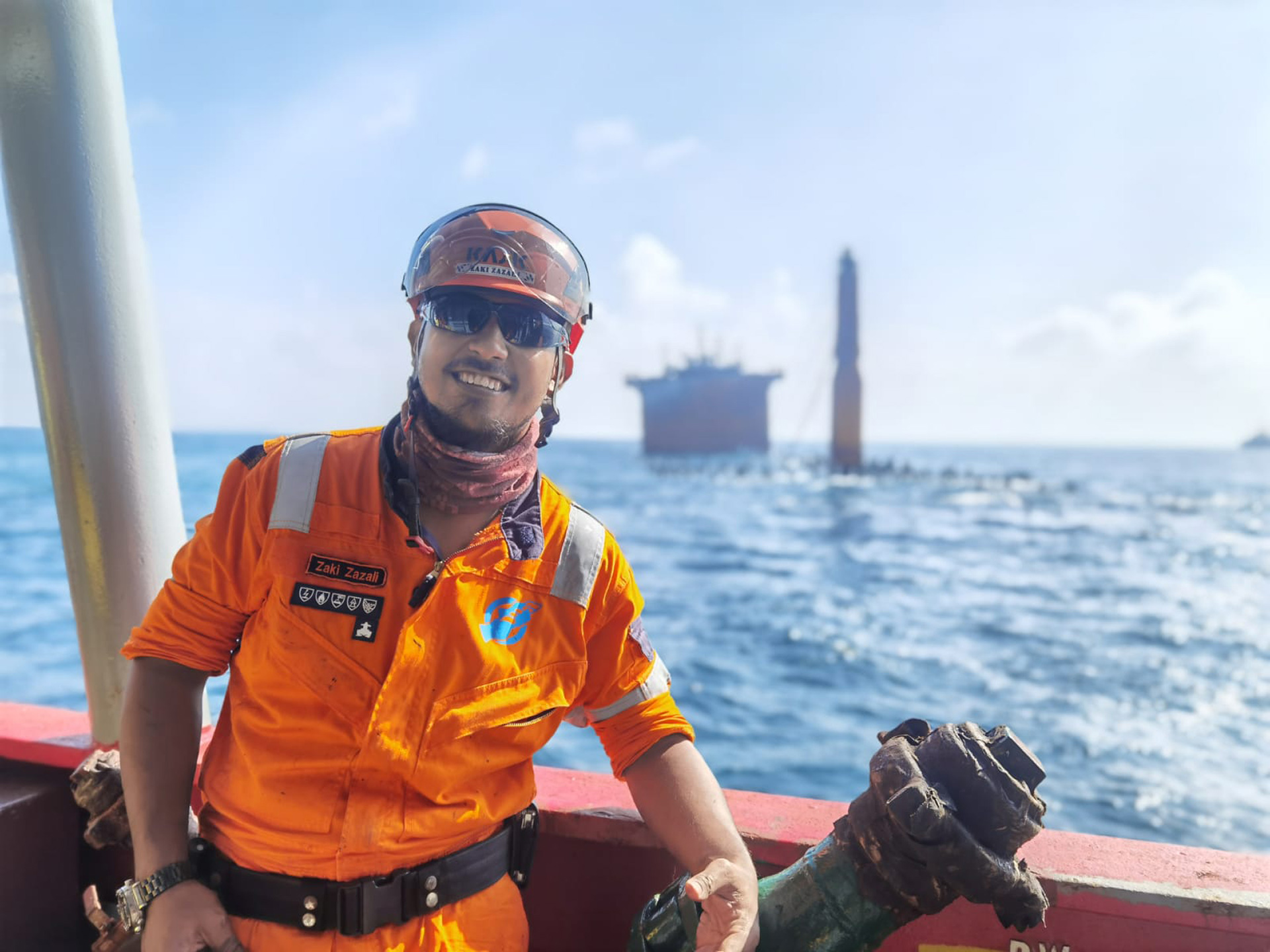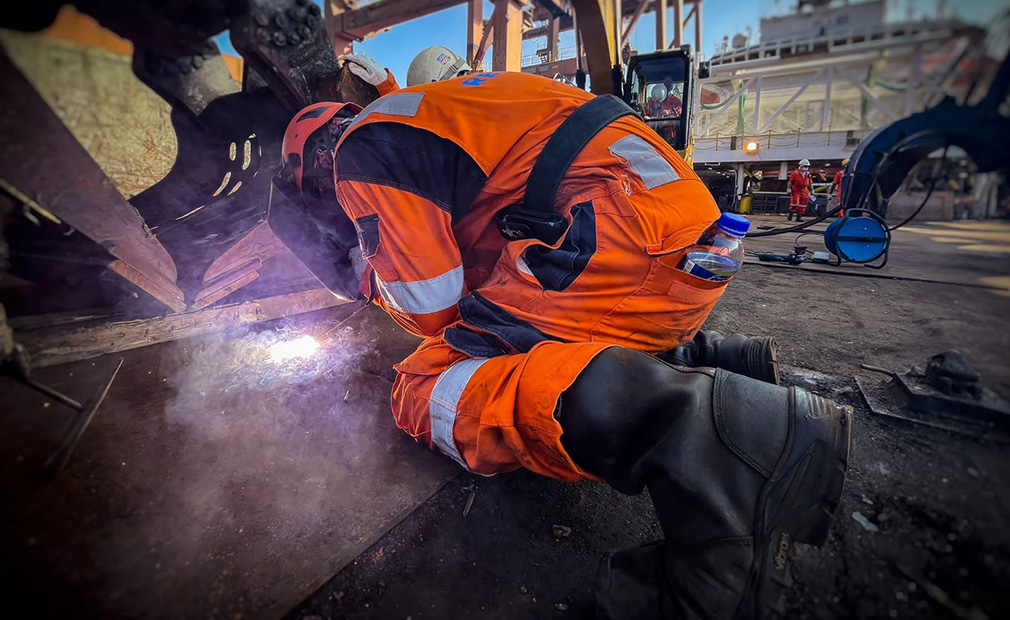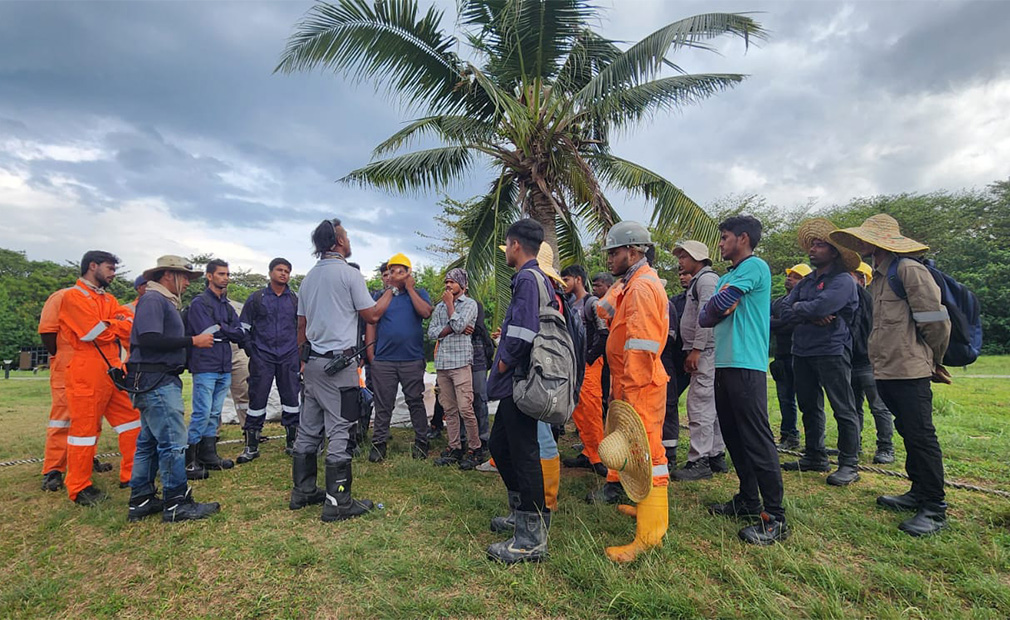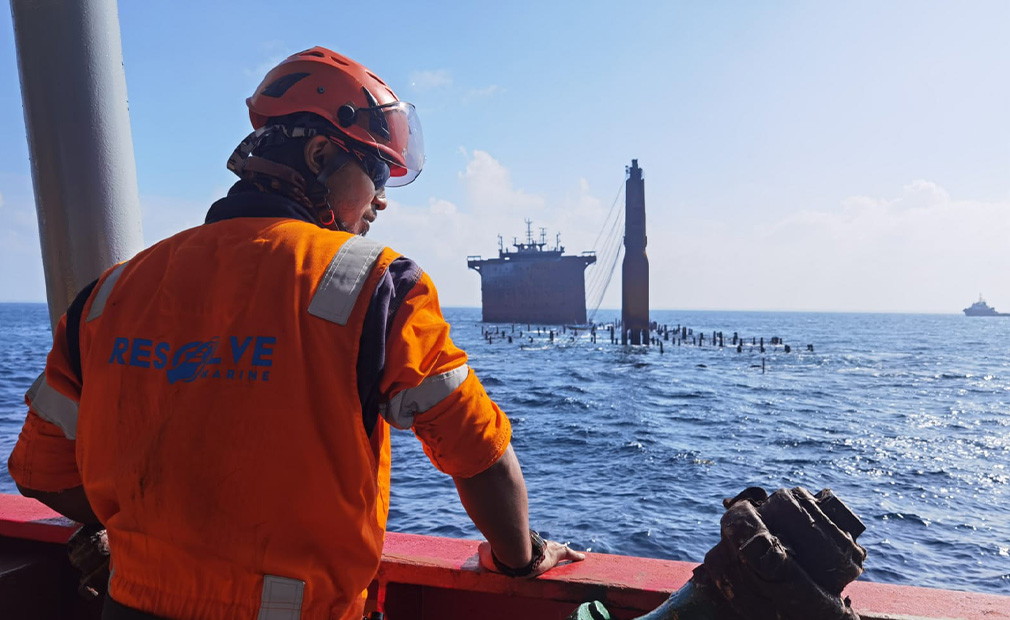
As a salvage diver, dive medic, and offshore safety officer, SC (NS) Mohammed Zaki bin Zazali responds to sea emergencies worldwide — and in Singapore’s waters.
When people hear about SC (NS) Mohammed Zaki bin Zazali’s job, they often say, “Oh! Like Finding Nemo?” In reality, salvage diving is far from the serene, colourful coral reefs as seen in the animated movie. Commercial salvage divers tackle various types of marine accidents such as attending to damaged or wrecked ships, clearing debris, extinguishing fires on vessels, and performing repair and survey work — all in challenging underwater conditions.
“Sometimes, you work in muddy water where you can’t even see your hand. You’re like a blind man walking,” said the 36-year-old, who served his National Service in the Singapore Police Force (SPF). “Clear water is a bonus, so I’m definitely not finding Nemo!”
After four years in ship husbandry — maintaining and cleaning ships — Zaki decided to pursue a commercial diving certification in Tasmania, Australia, on a friend’s recommendation. After graduation, he worked as a freelance diver and surveyor, diving under ships to inspect them for damage before sale, before joining a Singapore-based salvage company (under a US parent company) as a diver in 2019.
“I initially dived for leisure, but as an adrenaline junkie, I like to push myself to see how far I can go,” he shared.

“As salvage divers, we’re jacks of all trades,” explained Zaki. “I do firefighting, rope access, ship-to-ship transfers, coordination, and more. If I’m in Singapore, I report to work at 9am and handle my usual administrative duties. But then, I might get a call for an emergency response, with a flight at 2pm.”
When that happens, Zaki quickly packs his diving and personal go bags, along with any required firefighting equipment, and heads straight to the airport. Jobs can last from a single day to six months, often requiring shift work within a team. Over time, he’s become accustomed to being resourceful and self-reliant. “In remote places like West Papua, it might take two weeks to get a proper diving knife, unlike in Singapore where everything is accessible,” he explains. “Salvage divers bring essentials, like water purification pills for locations like the Solomon Islands where fresh water isn’t guaranteed.”
Zaki’s team includes colleagues from South Africa and the Netherlands, working together in locations with vastly different safety standards. “For example, in Bangladesh, they have their own ways of diving,” he says. “What we consider dangerous might be normal for them — it’s a cultural difference.”
Though he doesn’t often discuss the risks, salvage diving does come with hazards.
“I’ve seen someone lose their hand,” he reveals. “There are explosions on vessels, people with pale faces due to decompression sickness. While we follow safety measures like the buddy system and safety talks, it ultimately comes down to individual judgment. At any point if you feel yours or your colleague’s life is at risk, you have to assess the situation and halt all work if deemed necessary.”
The job has its surprises, he adds. “Underwater drones can provide visuals during surveys, but they can’t open doors — that’s why we still need divers. Sometimes, we do ship-to-ship transfers, moving liquids, solids, or even rocks. It could be anything.”

In June 2024, when an oil spill affected the Southern Islands, Zaki’s company was hired to assist with the cleanup around Lazarus, St John’s, and Kusu Islands. Taking over as coordinator, Zaki faced additional challenges, as oil dispersal chemicals couldn’t be used due to their impact on marine life. Instead, the team used absorbent, biodegradable materials to manually collect the oil and debris.
It also involved unexpected interactions. “Some people asked, ‘When will you finish? My kids want to swim.’ Others, like a group of boys, expected us to throw back their frisbee, which had fallen into the oil. For their safety, I had to dispose it as it had been contaminated. Being predisposed to this kind of oil may also put them at a risk for cancer.
The crew worked nonstop for two months, even on National Day. Thankfully, not all encounters with the public were negative. “It was very hot, and there was a convenience store on Lazarus Island. I thought they’d chase us out because we were covered in oil-stained overalls, but they said, ‘You’re on the oil spill recovery team — everything’s on the house.’ Hearing that, we felt very appreciated.”

Zaki tries to video call his wife regularly when he’s overseas, knowing the commitment can be hard on her and their seven children, aged one to 16. “Once, on the second day of Hari Raya, I had to rush to West Papua. Imagine the stress — but it was nothing compared to the trembling I felt when I was telling my wife! My kids were already in their baju kurung. But my wife was very understanding. Nobody likes cancelled plans, but she told me to do what I needed to do.”
When he’s home, Zaki steps in to support his family, taking the kids out cycling at West Coast Park or to the playground, while he keeps fit by jogging. He also loves cooking family favourites like aglio olio pasta, lasagna, baked rice, and mac and cheese, and taking them on short tech-free vacations to places like Cameron Highlands.
Looking ahead, Zaki plans to continue salvage diving while upgrading his skills. Already a certified dive medical technician and safety officer, his goal is to eventually transition into a safety supervisory role, allowing him to spend more time at home. “Salvage diving is not a walk in the park, and nothing is straightforward or spoon-fed — you need to control your fear, make do with what you have, and be the eyes for the other guys,” he reflects. “But doing this job allows me to work in an environment that I love. It’s a rare opportunity.”

Like our stories? Subscribe to our Frontline Digital newsletters now! Simply download the HomeTeamNS Mobile App and update your communication preference to ‘Receive Digital Frontline Magazine’, through the App Settings.

